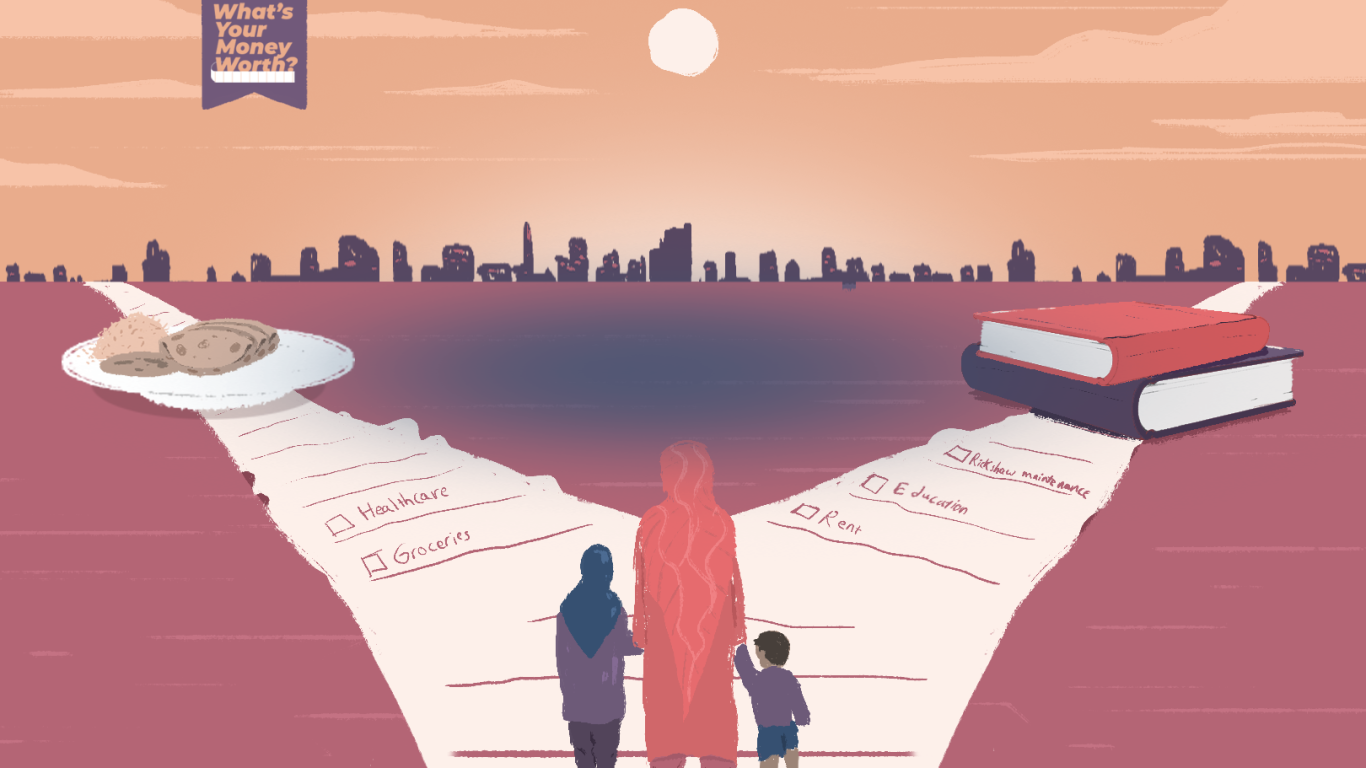‘I will go hungry if I have to’
A Pakistani domestic worker is determined to give her children an education and ensure they are fed, even if means she must sometimes skip meals.

What's your money worth? A series from the front line of the cost of living crisis, where people who have been hit hard share their monthly expenses.
Name: Aisha Faisal
Age: 27
Occupation: Domestic worker
Lives with: Husband Faisal (27) who drives a rickshaw; daughter Muskan (11); and son Huzaifa (4)
Lives in: A single, open-plan rented room on the top floor of a four-storey building in an informal, low-income settlement in Karachi, Pakistan.
Monthly household income: Aisha, the main breadwinner of the house, earns 30,000 Pakistani rupees ($104) a month. Faisal, who has been struggling to find passengers, normally brings home around 10,000 rupees ($35). In a good month, their combined monthly income is 40,000 rupees ($138). The median salary for 2023 in Pakistan is 76,858 rupees ($266) per month.
Total expenses for the month: 53,500 rupees ($185). In July, Aisha went 13,500 rupees ($47) over her carefully planned 40,000-rupee ($138) monthly budget because of additional school-related expenses and an unforeseen rickshaw servicing bill.